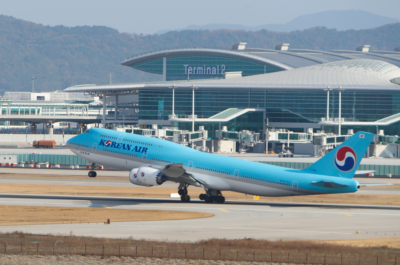Accessible travel -travel by people with disabilities- is an adventure enjoyed on a global scale. Yet too often this adventure is sidelined or delayed by inadequate facilities, higher prices and general hassles. Thankfully, the travel community is generating more and more solutions to these needs, creating a growing network of travel options for disabled people worldwide and broadening the access of accessible travel…

Accessible travel -travel by people with disabilities- is an adventure enjoyed on a global scale. Yet too often this adventure is sidelined or delayed by inadequate facilities, higher prices and general hassles. Thankfully, the travel community is generating more and more solutions to these needs, creating a growing network of travel options for disabled people worldwide and broadening the access of accessible travel. But thanks to a series of tips from the travel professionals at ASTA, that next trip will be memorable for all the right reasons.
“There are as many disabilities as there are disabled people, so each traveler’s needs are different. That`s why it`s critical that a traveler with special needs work with a professional travel agent who understands them and their unique situation,” said ASTA President and Chairman Chris Russo. “A travel agent will be there for their client before, during and after their trip, and when the unexpected happens. Working with a travel agent who specializes in accessible travel will give those with special needs added peace of mind.”
Among the tips from ASTA are:
- Do your homework. Before boarding the plane or ship, make sure you have thoroughly studied the country you will be visiting. Word-of-mouth from other disabled travelers is a great resource, and the Internet can provide some details, but no source is more valuable than a travel agent, especially one who specializes in disabled travel.
- Speak up. Ask your travel agent detailed questions about the customs of the country and the services provided at each destination you plan to visit. Your travel agent should also provide you with information on transfers while advising you of the types of terrain you can expect to encounter, be they cobblestone streets or smooth pavement.
- Make healthy choices. Talk to your physician about the trip you have planned and immunizations you’ll need. Be specific when describing the trip to your doctor, including, if cruising, all ports your cruise ship will stop in and all means of transportation you’ll encounter. Your doctor can provide tips and medicines for coping with long flights, along with advice on medical facilities at your destination and how you can obtain prescription drugs in case of an emergency.
- A prescription for travel. Be sure to take enough prescribed medication to last the duration of the trip, including extra medicine and a copy of your prescription just in case. Pack all medication in your carry-on bag, for checked baggage occasionally travels east while you’re heading west. It`s a good idea to carry your prescriptions in their labeled containers, for many countries have strict drug-trafficking laws and might be suspicious of pills in unlabeled bottles. In fact, it’s wise to travel with a signed letter from your doctor detailing your condition, medications, potential complications and, if you’re diabetic, your requirement to carry needles.
- Leash laws? Some countries have restrictions on service dogs arriving or simply traveling through their countries, so check with your travel agent first. If service dogs are permitted, check if any quarantine or vaccination requirements will apply. Be sure to have your dog’s rabies shots and other vaccinations up-to-date, and bring all paperwork to prove it. And since some ports do not allow dogs to enter without proper quarantine time, be sure to have a back-up plan or a friend handy in order to disembark and enjoy. Wherever you plan to explore with your guide dog, be sure to research where the closest vet and emergency pet hospitals are located.
- Fly`n`drive. Some large planes have a space to put a manual wheelchair in the cabin, though most wheelchairs and scooters are placed in cargo. Have your travel agent try to book a non-stop flight if possible to alleviate the hassle of getting your chair out of cargo. Use gel-cell batteries if traveling in a power-driven wheelchair, for many airlines refuse to carry wet-cell batteries for security reasons.
- Time for a tune-up. No matter what type of wheelchair or scooter your ride, have it serviced before a trip. It may be difficult to find a repair shop overseas or even in some cities. Be sure to bring spare parts and tools, and you or someone you’re traveling with should know how to dismantle your scooter or wheelchair in the event something goes wrong.
Theodore is the Co-Founder and Managing Editor of TravelDailyNews Media Network; his responsibilities include business development and planning for TravelDailyNews long-term opportunities.


























































![[PR] PR_Ascott and Vimut Hospital_2024](https://www.traveldailynews.asia/wp-content/uploads/2024/04/PR-PR_Ascott-and-Vimut-Hospital_2024-400x265.jpg)







